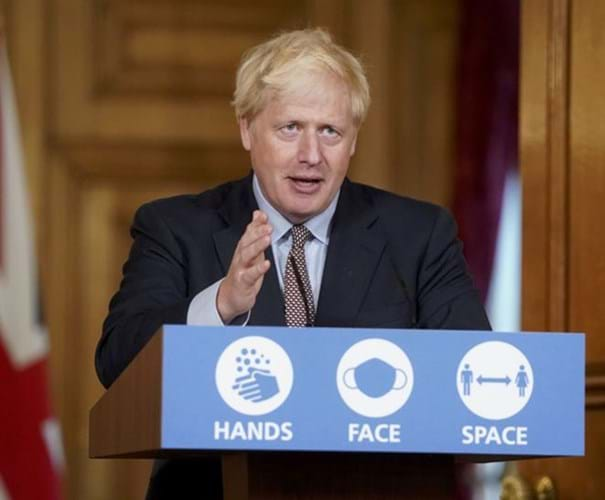
The new lockdown was announced by Prime Minister Boris Johnson on Saturday October 31 and details are currently sketchy.
During the previous lockdown the wording of the government guidance to non-essential retail in England evolved so that by May it clearly stated two key things (which were likely intended from late March onwards but not stated at the outset):
"Businesses and venues that must remain closed to members of the public..."
"Staff may be present to make deliveries or provide services in response to orders such as those through telephone, online, or mail."
This wording - "closed to members of the public" - had meant that auction houses and dealers, while shut to the public, could continue to operate behind closed doors. Auction houses, for example, were able to hold live online only sales and fulfil delivery or collection afterwards. Many also chose to hold Covid-secure viewings by appointment only. Dealers also traded online with many enhancing their web presence and online order taking.
Basic wording
The new lockdown in England, comes with more basic wording - for the moment. As of Monday November 2 it consists of one page on the gov.uk website with links to ancillary pages. There is no mention of indoor and outdoor markets, which had featured prominently in the various wordings of the previous lockdown in England.
The key parts of the wording are as follows:
"To reduce social contact, the Government has ordered certain businesses and venues to close. These include: all non-essential retail, including, but not limited to clothing and electronics stores, vehicle showrooms, travel agents, betting shops, auction houses, tailors, car washes, tobacco and vape shops."
A literal reading would suggest that these businesses must simply close temporarily and stop all forms of trading but this will not be the government's intention. Major high street betting shops, for example, will temporarily close their premises but they will not stop taking orders online from their punters.
It is highly likely that the intended wording is the version used in May earlier this year, whereby businesses have to close their premises to the members of the public but can continue trading behind closed doors.
This is made all the more likely by one other paragraph in the latest wording:
"Non-essential retail can remain open for delivery to customers and click-and-collect."
This effectively means staff of art and antiques businesses can go onsite to fulfil collection and delivery - a role they could not fulfil by working from home and a role they could not fulfil if the company premises were closed to everyone including employees.
The mention of 'click-and-collect' effectively assumes that non-essential retail will be trading online. It is also reasonable to assume that 'click-and-collect' would encompass telephone and mail orders as well as internet orders.
Details to follow this week
When addressing the nation last Saturday evening the Prime Minister stated: "We're not going back to the full-scale lockdown of March and April; the measures I have outlined are less prohibitive and less restrictive."
The government website states that "a full list of the business closures will be published and set out in law." When this is published later this week it is probable that the wording will be amended to provide the clarifications art and antiques businesses are expecting.
In the meantime, SOFAA the Society of Fine Art Auctioneers is seeking clarification from the Department for Digital, Culture, Media & Sport (DCMS) that auctioneers can continue to work provided their premises are closed to the public.
Furlough scheme continues
One helpful piece of information that was announced was the continuation of the Coronavirus Job Retention Scheme, generally referred to as the 'furlough scheme'.
The announcement stated:
"Workers in any part of the UK can retain their job, even if their employer cannot afford to pay them, and be paid at least 80% of their salary up to £2500 a month.
"The flexibility of the current CJRS will be retained to allow employees to continue to work where they can.
"Employers small or large, charitable or non-profit are eligible and because more businesses will need to close, they will now be asked to pay just National Insurance and Pensions contributions for their staff during the month of November – making this more generous than support currently on offer.
"The Job Support Scheme will not be introduced until after Coronavirus Job Retention Scheme ends."





